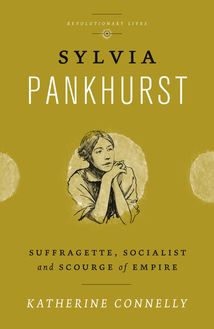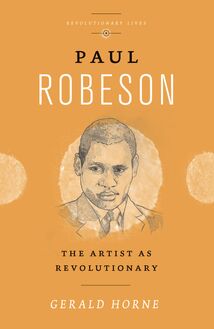-
 Univers
Univers
-
 Ebooks
Ebooks
-
 Livres audio
Livres audio
-
 Presse
Presse
-
 Podcasts
Podcasts
-
 BD
BD
-
 Documents
Documents
-
- Cours
- Révisions
- Ressources pédagogiques
- Sciences de l’éducation
- Manuels scolaires
- Langues
- Travaux de classe
- Annales de BEP
- Etudes supérieures
- Maternelle et primaire
- Fiches de lecture
- Orientation scolaire
- Méthodologie
- Corrigés de devoir
- Annales d’examens et concours
- Annales du bac
- Annales du brevet
- Rapports de stage
La lecture à portée de main
Vous pourrez modifier la taille du texte de cet ouvrage
Découvre YouScribe en t'inscrivant gratuitement
Je m'inscrisDécouvre YouScribe en t'inscrivant gratuitement
Je m'inscrisEn savoir plus
Vous pourrez modifier la taille du texte de cet ouvrage
En savoir plus

Description
In this vivid biography Katherine Connelly examines Pankhurst's role at the forefront of significant developments in the history of radical politics. She guides us through Pankhurst's construction of a suffragette militancy which put working-class women at the heart of the struggle, her championing of the Bolshevik Revolution and her clandestine attempts to sabotage the actions of the British state, as well as her early identification of the dangers of Fascism.
The book explores the dilemmas, debates and often painful personal consequences faced by Pankhurst which were played out in her art, writings and activism. It argues that far from being an advocate of disparate causes, Pankhurst's campaigns were united by an essential continuity which hold vital lessons for achieving social change. This lively and accessible biography presents Pankhurst as a courageous and inspiring campaigner, of huge relevance to those engaged in social movements today.
1. Portrait of the Artist as a Young Woman
2. Suffragettes, Socialism and Sacrifice
3. Working for their own Emancipation
4. Resisting the War
5. Sylvia’s Communism
6. Anti-Fascism
7. Fighting Imperialism in War and Peace
Notes
Index
Sujets
Women's Studies
Social Science
Sociologie, société et politique
Etiopía
Communism
Pankhurst
Russian Revolution
Women's Social and Political Union
Liberal Party
Ethiopia
Women's suffrage
Richard Pankhurst
Dreadnought
Révolution russe
Popular
Communisme
Union féminine sociale et politique
Suffragette
Parti libéral
Informations
| Publié par | Pluto Press |
| Date de parution | 05 septembre 2013 |
| Nombre de lectures | 1 |
| EAN13 | 9781849649438 |
| Langue | English |
| Poids de l'ouvrage | 3 Mo |
Informations légales : prix de location à la page 0,0748€. Cette information est donnée uniquement à titre indicatif conformément à la législation en vigueur.
Extrait
Sylvia Pankhurst
Revolutionary Lives
Series Editors: Brian Doherty, Keele University; Sarah Irving, University of Edinburgh; Professor Paul Le Blanc, La Roche College, Pittsburgh
Revolutionary Lives is a series of short, critical biographies of radical figures from throughout history. The books are sympathetic but not sycophantic, and the intention is to present a balanced and, where necessary, critical evaluation of the individual’s place in their political field, putting their actions and achievements in context and exploring issues raised by their lives, such as the use or rejection of violence, nationalism, or gender in political activism. While individuals are the subject of the books, their personal lives are dealt with lightly except insofar as they mesh with political concerns. The focus is on the contribution these revolutionaries made to history, an examination of how far they achieved their aims in improving the lives of the oppressed and exploited, and how they can continue to be an inspiration for many today.
Also available:
Salvador Allende: Revolutionary Democrat Victor Figueroa Clark
Leila Khaled: Icon of Palestinian Liberation Sarah Irving
Jean Paul Marat: Tribune of the French Revolution Clifford D. Conner
Gerrard Winstanley: The Digger’s Life and Legacy John Gurney
www.revolutionarylives.co.uk
Sylvia Pankhurst
Suffragette, Socialist and Scourge of Empire
Katherine Connelly
First published 2013 by Pluto Press 345 Archway Road, London N6 5AA
www.plutobooks.com
Distributed in the United States of America exclusively by Palgrave Macmillan, a division of St. Martin’s Press LLC, 175 Fifth Avenue, New York, NY 10010
Copyright © Katherine Connelly 2013
The right of Katherine Connelly to be identified as the author of this work has been asserted by her in accordance with the Copyright, Designs and Patents Act 1988.
Every effort has been made to trace copyright holders and to obtain their permission for the use of the photographs in this book. The publisher apologises for any errors or omissions in this respect and would be grateful if notified of any corrections that should be incorporated in future reprints or editions
British Library Cataloguing in Publication Data
A catalogue record for this book is available from the British Library
ISBN 978 0 7453 3323 6 Hardback ISBN 978 0 7453 3322 9 Paperback ISBN 978 1 8496 4942 1 PDF eBook ISBN 978 1 8496 4944 5 Kindle eBook ISBN 978 1 8496 4943 8 EPUB eBook
Library of Congress Cataloging in Publication Data applied for
The following photographs are from the Estelle Sylvia Pankhurst collection held at the International Institute of Social History in Amsterdam: page 13 (in her studio), page 23 (WSPU’s membership card), page 53 (recovering from hunger strike), page 74 (Cost Price Restaurant) and page 120 (speaking at an anti-Nazi demo). The photograph on page 107 (in Moscow, at the Third International) is from the William Gallacher collection, also held at the International Institute of Social History in Amsterdam.
This book is printed on paper suitable for recycling and made from fully managed and sustained forest sources. Logging, pulping and manufacturing processes are expected to conform to the environmental standards of the country of origin.
10 9 8 7 6 5 4 3 2 1
Typeset from disk by Stanford DTP Services, Northampton, England Simultaneously printed digitally by CPI Antony Rowe, Chippenham, UK and Edwards Bros in the United States of America
Contents
Acknowledgements
Introduction
1
Portrait of the Artist as a Young Woman
2
Suffragettes, Socialism and Sacrifice
3
Working For Their Own Emancipation
4
Resisting the War
5
Sylvia’s Communism
6
Anti-Fascism, Women and Democracy
7
Fighting Imperialism in War and Peace
Conclusion
Notes
Index
Dedicated with my love
To my parents Ros and Paul Connelly Who embody the values celebrated in this book
Acknowledgements
First and foremost I owe a profound debt of gratitude to Sylvia’s son, Dr Richard Pankhurst, and to Sylvia’s daughter-in-law, Rita Pankhurst. Richard Pankhurst read the manuscript and provided invaluable comments and advice. Throughout the writing of this book they were both always supportive and very generously shared their memories of Sylvia with me. It was a privilege to get to know them and I feel that the interview they gave me greatly enriches this book.
I would also like to thank my publishers Pluto Press for all their help, in particular David Castle who guided me through the entire process and was always supportive and understanding.
I was helped in the commissioning stage by Neil Faulkner, Megan Dobney, Mel Whitter and Des Freedman. I am especially grateful to Tracy Walsh at Ruskin College who gave me one of my first opportunities to present the early ideas for this book and whose kindness and enthusiasm were more than I could ever have hoped or asked for. I would like to thank the students at Ruskin for their thought-provoking contributions which helped me to develop my thoughts. Kate Clayton-Hathway invited me to present my ideas to the Oxford International Women’s Festival and I am grateful to her and all those who contributed there. You helped me to pull my last thoughts together.
Explo Nani-Kofi, Leo Zeilig, Marika Sherwood, Hakim Adi, Leslie James and Barbara De Vivo kindly suggested reading material for researching the last chapters of the book. Nigel Shephard generously gave up his time to discuss with me the photographs available in the archives. Jane Mackelworth’s research on the suffragettes has opened my eyes to new perspectives and her support has meant a lot to me.
There are many people I would like to thank who are too numerous to mention here and many of whose names I do not know. Firstly, all the people in the social movements that it has been my privilege to campaign alongside in the last ten years. You have educated and inspired me. I would like to thank all the staff at the Tower Hamlets Local History Library, the Working Class Movement Library, the Labour History Archive and Study Centre (People’s History Museum/University of Central Lancashire), the Bishopsgate Institute’s Library and Archive Collections, the British Library, the Museum of London, the School of Oriental and African Studies’ Library, the Marx Memorial Library and especially at the Women’s Library where I conducted so much of the research for this book.
I am very grateful to Kings Lynn Trades Council for inviting me to speak at their marvellous ‘Women for Change’ series and for all the insightful and helpful comments offered by those who attended. In particular I am grateful to their secretary, Jo Rust, who has been very supportive of this book and its subject matter; to William Alderson, who read the manuscript and offered thoughts; and to Jacqueline Mulhallen who read the manuscript, provided me with comments and suggestions, and was extremely generous in her constant support and in sharing her research and ideas on Sylvia in general and her art in particular – I am very much in her debt. Lindsey German, Elaine Graham-Leigh, Lucy Maxwell-Scott, Richard Allday and Ros Connelly also all read the manuscript and provided detailed and extremely useful comments. I am particularly grateful to my mum, Ros Connelly, who also compiled the index and was always on the other end of the phone and always full of encouragement.
This leads me to thanks of a different kind. I am grateful to my friends, and those members of my and Richard’s family who were so understanding of my unreliability and sudden absences.
I do not know how to begin to thank my parents Paul and Ros Connelly and my sister Ruth Keogh Connelly for everything they have given me, but I do know that their love, support and understanding while I was writing helped me every single day.
I would like to conclude by thanking my partner Richard Allday who was always willing to share every idea, every development and every setback I faced. His personal commitment to the ideas at the heart of this book, his support, love and comradeship mean the world to me and were a constant source of inspiration while I was writing.
Introduction
The solitary Suffragette who presented herself was able to walk quietly in unnoticed and to take a seat in the middle of the room. If her heart beat so loud that it seemed that all must hear it, if she felt sick and faint with suspense, no one knew. 1
In the midst of the vast Liberal Party rally just before the 1906 general election, the suffragette waited to ask her question, steeling herself for the violent ejection that invariably followed. The speaker was Winston Churchill, well-known for his particularly ‘insulting attitude’ towards women’s suffrage. When the suffragette stood up and asked her question, ‘Will the Liberal Government give women the vote?’, he just ignored her. The ‘votes for women’ banner in her hand was snatched from her, but when some of the men in the audience demanded an answer the chairman invited the suffragette to ask her question from the platform. After doing so, Churchill took her roughly by the arm and forced her into a seat on the platform saying, ‘No, you must wait here till you have heard what I have to say’, and told the audience ‘Nothing would induce me to vote for giving women the franchise.’ Suddenly all the men on the platform stood up, blocking the suffragette from view, while others pushed her into a back room. 2 One man went to find a key to lock her in, while another, standing against the door, ‘began to use the most violent language and, calling her a cat, gesticulated as though he would scratch her face with his hands’. 3 She ran to the barred window and called out to the people in the street. The threatening man left and the crowd pointed out a window with some bars missing which the suffragette climbed through and then, at the crowd’s request, delivered an impromptu spee
-
 Univers
Univers
-
 Ebooks
Ebooks
-
 Livres audio
Livres audio
-
 Presse
Presse
-
 Podcasts
Podcasts
-
 BD
BD
-
 Documents
Documents
-
Jeunesse
-
Littérature
-
Ressources professionnelles
-
Santé et bien-être
-
Savoirs
-
Education
-
Loisirs et hobbies
-
Art, musique et cinéma
-
Actualité et débat de société
-
Jeunesse
-
Littérature
-
Ressources professionnelles
-
Santé et bien-être
-
Savoirs
-
Education
-
Loisirs et hobbies
-
Art, musique et cinéma
-
Actualité et débat de société
-
Actualités
-
Lifestyle
-
Presse jeunesse
-
Presse professionnelle
-
Pratique
-
Presse sportive
-
Presse internationale
-
Culture & Médias
-
Action et Aventures
-
Science-fiction et Fantasy
-
Société
-
Jeunesse
-
Littérature
-
Ressources professionnelles
-
Santé et bien-être
-
Savoirs
-
Education
-
Loisirs et hobbies
-
Art, musique et cinéma
-
Actualité et débat de société
- Cours
- Révisions
- Ressources pédagogiques
- Sciences de l’éducation
- Manuels scolaires
- Langues
- Travaux de classe
- Annales de BEP
- Etudes supérieures
- Maternelle et primaire
- Fiches de lecture
- Orientation scolaire
- Méthodologie
- Corrigés de devoir
- Annales d’examens et concours
- Annales du bac
- Annales du brevet
- Rapports de stage




















